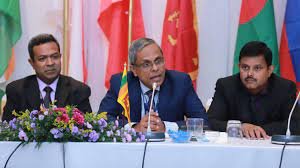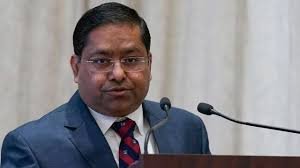India Assumes Chair of Colombo Process for 2024-26
India has recently assumed the chair of the Colombo Process, a regional consultative forum on the management of overseas employment and contractual labour for countries of origin in Asia. This development marks a significant step in India’s efforts to enhance cooperation and address the challenges faced by migrant workers.
Significance of the Colombo Process
The Colombo Process, initiated in 2003, aims to facilitate safe and legal migration and ensure the protection of migrant workers’ rights. India’s new role as chair from 2024 to 2026 places it in a pivotal position to influence policies and initiatives that will benefit millions of migrant workers across the member states.
India’s Role and Objectives
As the chair, India plans to focus on several key areas, including the promotion of ethical recruitment practices, skills development and recognition, and the protection of migrant workers’ rights. India aims to leverage its vast experience and robust institutional frameworks to drive positive changes and foster regional cooperation.
Challenges Faced by Migrant Workers
Migrant workers often face numerous challenges, such as exploitation, poor working conditions, and lack of social security. By chairing the Colombo Process, India intends to address these issues through comprehensive policies and collaborative efforts with other member countries.
Expected Outcomes and Benefits
India’s chairmanship is expected to result in stronger regional ties, improved labour migration frameworks, and enhanced welfare measures for migrant workers. This leadership role will also enable India to showcase its commitment to the welfare of its diaspora and contribute to global migration governance.

Why This News is Important
Impact on Migrant Workers
India assuming the chair of the Colombo Process is crucial as it directly impacts millions of migrant workers. These workers often face significant challenges, and India’s leadership aims to mitigate these through better policies and protections.
Regional Cooperation
This development highlights India’s commitment to fostering regional cooperation. By taking on this leadership role, India is positioned to influence migration policies across Asia, ensuring safer and more regulated labour migration.
Strengthening International Relations
India’s chairmanship strengthens its international relations, particularly with other Colombo Process member countries. This move is a testament to India’s growing influence and its proactive stance in addressing global migration issues.
Economic Implications
The focus on ethical recruitment and skills development can have positive economic implications for both the sending and receiving countries. Improved migration frameworks can lead to better job opportunities and enhanced economic contributions from migrant workers.
Policy Development
India’s leadership will likely result in the development of comprehensive policies that could serve as a model for other regions. This can lead to improved global standards for the treatment and protection of migrant workers.
Historical Context
The Colombo Process
The Colombo Process was established in 2003 as a regional consultative forum to address issues related to labour migration. It comprises 12 member countries, including major labour-sending nations in Asia.
India’s Involvement in Migration Policies
India has a long history of involvement in migration policies, both domestically and internationally. It has been actively participating in global forums and initiatives aimed at protecting migrant workers’ rights.
Previous Chairs of Colombo Process
Before India, several other countries have chaired the Colombo Process, each contributing to its development and the welfare of migrant workers. The role of the chair is to lead the dialogue and ensure the implementation of agreed-upon policies.
Global Migration Trends
Migration has been a critical issue globally, with millions of people moving across borders for better opportunities. The Colombo Process aims to manage this migration in a way that is safe, legal, and beneficial for all parties involved.
India’s Diaspora
India has one of the largest diasporas in the world, with millions of Indians working overseas. The country has a vested interest in ensuring that its citizens abroad are treated fairly and have access to protections and rights.
Key Takeaways from India Assumes Chair of Colombo Process for 2024-26
| Serial Number | Key Takeaway |
|---|---|
| 1 | India has taken over the chairmanship of the Colombo Process from 2024 to 2026. |
| 2 | The Colombo Process aims to manage overseas employment and protect migrant workers’ rights. |
| 3 | India plans to focus on ethical recruitment, skills development, and rights protection for migrant workers. |
| 4 | This leadership role enhances India’s influence in regional migration policies. |
| 5 | India’s chairmanship is expected to improve labour migration frameworks and welfare measures for migrant workers. |
Important FAQs for Students from this News
What is the Colombo Process?
The Colombo Process is a regional consultative forum established in 2003, aimed at facilitating safe and legal migration and ensuring the protection of migrant workers’ rights in Asia.
Why is India’s chairmanship of the Colombo Process significant?
India’s chairmanship is significant because it allows India to influence migration policies, improve the welfare of migrant workers, and enhance regional cooperation on labour migration issues.
What are the main objectives of India as the chair of the Colombo Process?
India aims to focus on ethical recruitment practices, skills development and recognition, and the protection of migrant workers’ rights during its chairmanship.
Which countries are part of the Colombo Process?
The Colombo Process comprises 12 member countries, including major labour-sending nations in Asia such as India, Bangladesh, Nepal, Pakistan, the Philippines, Sri Lanka, and others.
How will India’s leadership in the Colombo Process benefit migrant workers?
India’s leadership is expected to lead to stronger regional ties, improved labour migration frameworks, and enhanced welfare measures for migrant workers, ensuring their rights and safety.
Some Important Current Affairs Links


















 Exciting News!
Exciting News!  Join Our Telegram Channel Now!
Join Our Telegram Channel Now!
 Join our Telegram channel for a thrilling adventure into the world of daily current affairs.
Join our Telegram channel for a thrilling adventure into the world of daily current affairs. 
 Don’t miss out on the latest updates and insights! Click to join now and be part of the knowledge revolution!
Don’t miss out on the latest updates and insights! Click to join now and be part of the knowledge revolution! 
